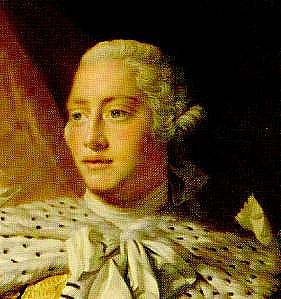 |
For more about the Malloren novels, click here. George III became king of England in 1760 at the age of 22. This is his coronation portrait. Dominated by his mother, Augusta, Princess of Wales, and his tutor, Lord Bute, of course he turned increasingly to the Marquess of Rothgar for advice, because Lord Rothgar alone did not seek anything in return. 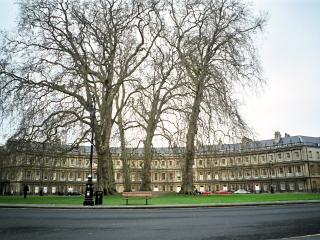
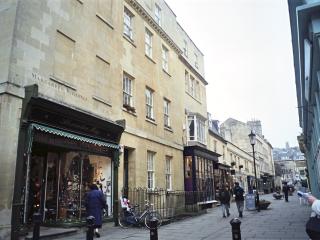 A piece of typical southern coutryside. I chose this picture because it doesn't include any modern features.  The main street of Sowerby, Yorkshire, which is part of Thirsk, where Brand Malloren stayed at the Three Tuns, and Rothgar searched for him. Apart from the paved road it is little changed from the time it was built in the 18th century. Our car is parked by the pavement (sidewalk) which is well separated from the road by the grassed and treed area. This would have protected walkers from the passing carriages. The next picture is a view of Bolton House, Wensleydale, Yorkshire, which I used as a starting point for my development of Arradale House. Not clear on the hills beyond is the ancient family home, Bolton Castle, which is pictured below. 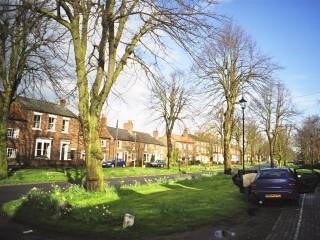
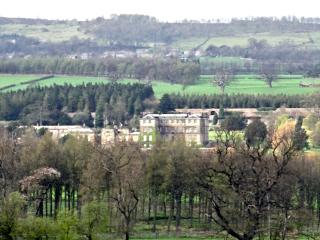 The ruins of Bolton Castle, and some typical lowland scenery in the dales. More rugged, with a shallow, fast-running stream. 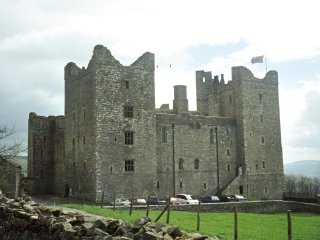
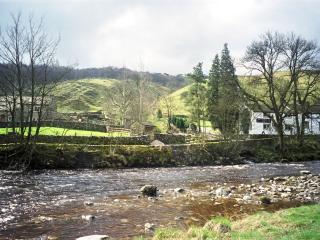 Two Yorkshire streets that are little changed from Georgian times. From the brick one, we again see typical dale scenery. 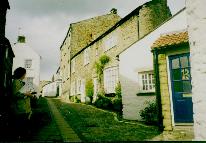
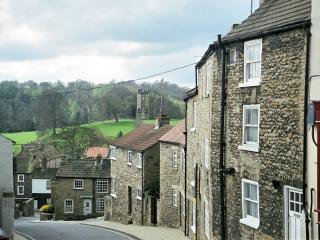
A typical northern alley. Alleys like this were common in any town, which is one reason sedan chairs remained popular into the regency period. Next we have scenery up in the dales where Rosa might have found Brand. The sort of scenery familiar to watchers of "All Creatures Great and Small." 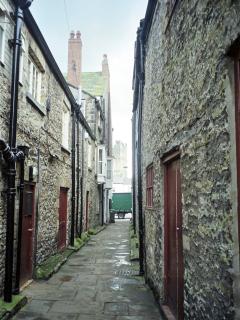
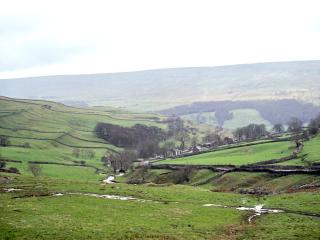 Some pictures of the Three Tuns in Thirsk: the parlour, where Rosa wrote her letter; the exterior, where Rothgar paced, showing unusual lack of cool; the entrance hall where he intercepted Diana and the sick Rosa; the stairs up which he carried Rosa; and the innyard where Diana, Lady Arradale, had some adventures not recorded in Secrets of the Night, but which can be read on my web page. The carpeting and chairs are Victorian, but most other details are as they were in the 1760s. 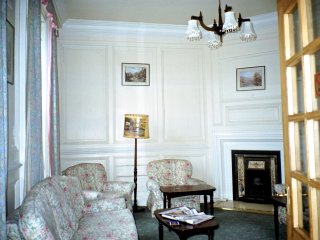
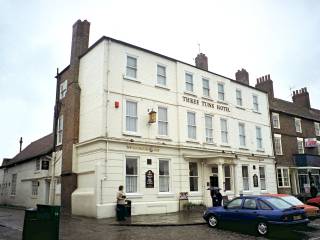
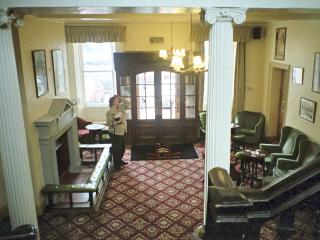 
 A picture of a room at Versailles. Lord Rothgar is well known there and is probably familiar with this room. It is here to show a luxurious room of the period. 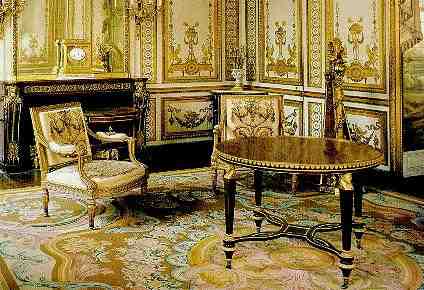 The first two pictures are of Rye, Sussex, where the central area is well preserved. These buildings are pre-Georgian, but again would have been very familiar to the Mallorens. More so than the new Georgian style, in fact. Next is a Georgian shop in Tunbridge Wells. 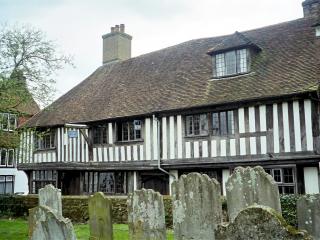 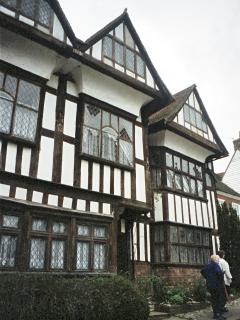
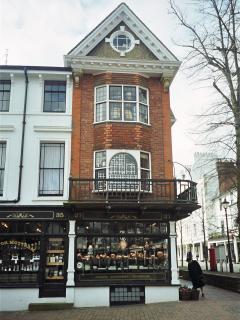
The interior of a luxurious coach. Rothgar's traveling carriage would be of this type. 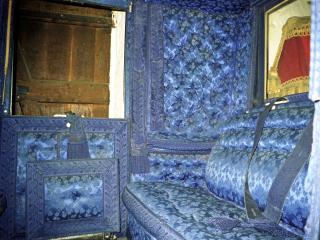 Showing coach steps let down so the travelers can alight decorously. The next two pictures are of sedan chairs, a luxurious one and a simple one. They were the common means of transport in the Georgian period because they could easily navigate narrow streets, and in poor weather, the user could enter the chair in one building and be carried right into one at the end. 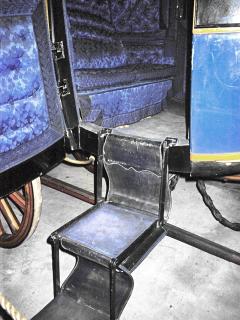
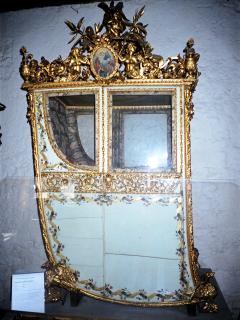
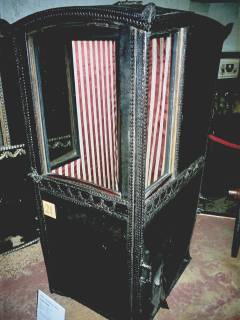 The wide panniered dress still required for formal court occasions, even though it was out of fashion for other wear. 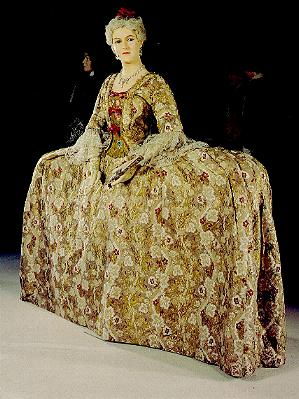 The sort of elaborate decoration used on men's garments for grand occasions. 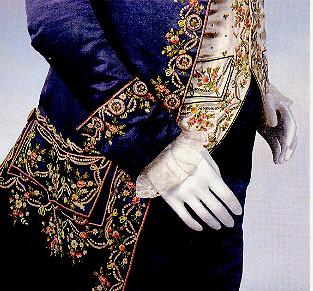 The following pictures are of the wonderful recreation of Georgian life at Tunbridge Wells called A Day At The Wells. The figures are all waxworks. The first shows a lady emerging from a sedan chair. As you see, the lid could be lifted to make this easy. The second picture is of an assembly, with dancing and gaming. The gaming table is an EO table, the first form of roulette, with bets placed only on even or odd. The third picture is of two women, showing typical costumes. 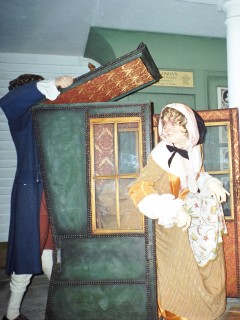
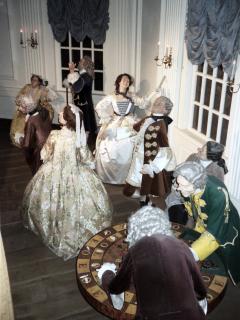
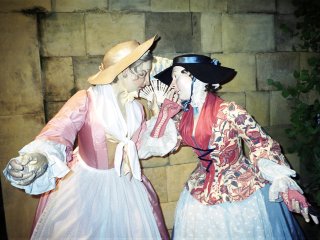 For more information about A Day At The Wells. Return to the menu |